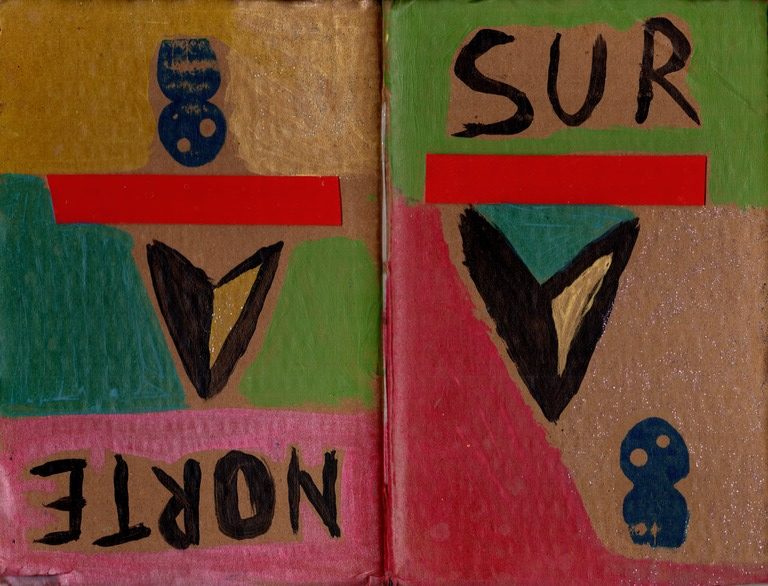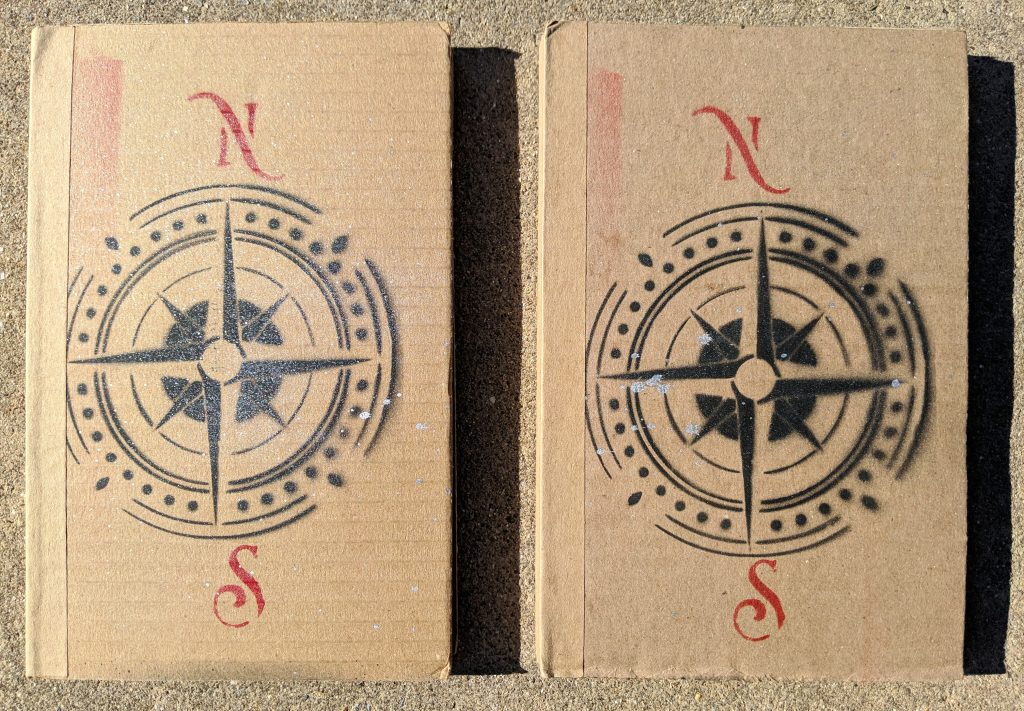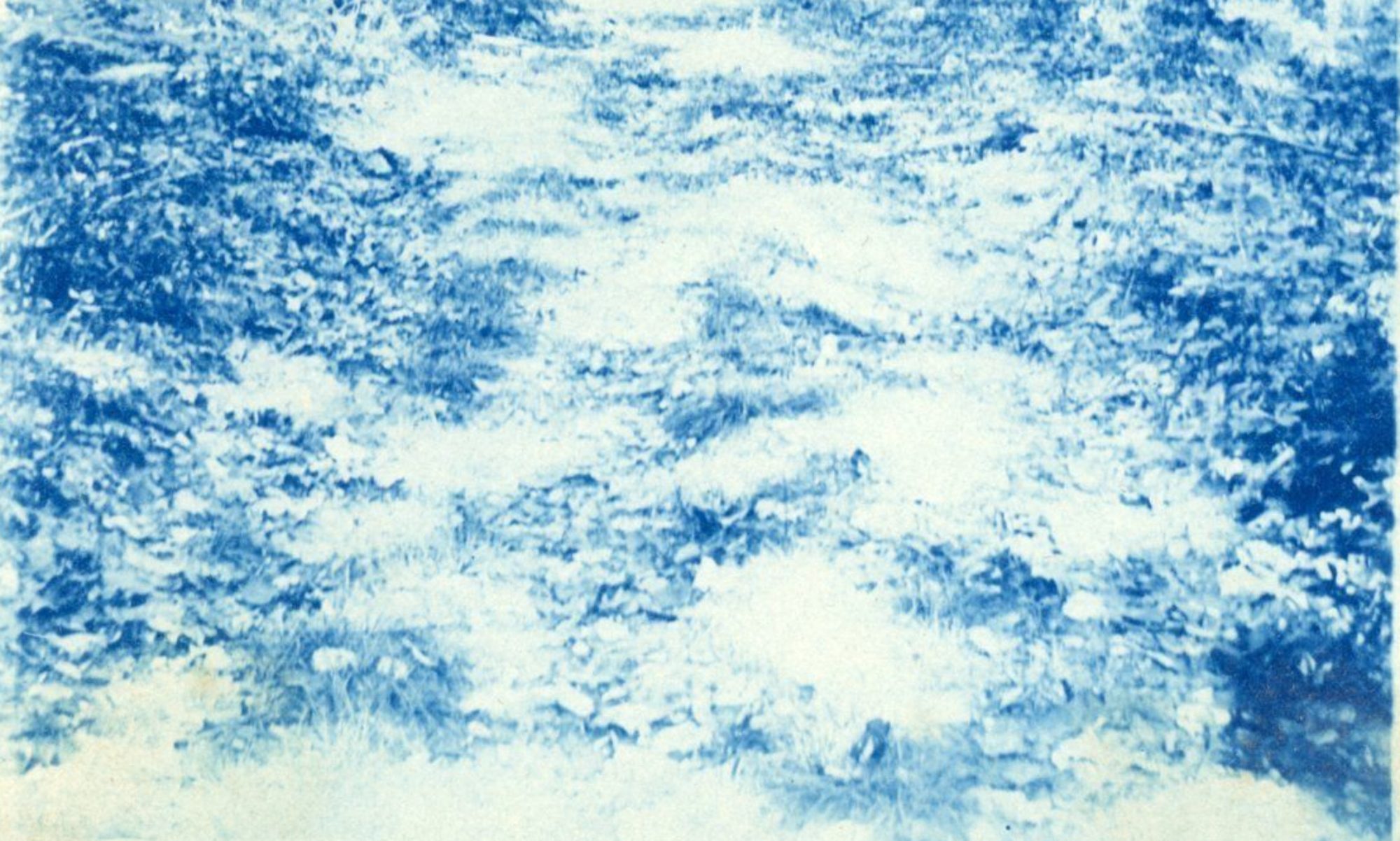
handmade cover and reverse of Norte/Sur (2012), a cartonera anthology.

handmade cover and reverse of Norte/Sur (2023), a cartonera anthology. Trans. by Liam Schmidt, Carmen Garcia-Armero, Robert Machado.
limited edition, AVAILABLE FOR PURCHASE US$10 plus shipping.
Email research(at)thelab.blue for order request.
The cartonera movement (books bound in cardboard with handmade covers) began as a response to Argentina’s economic crisis of 2001. By 2003, the artist Javier Barilaro and poet Washington Cucurto had established the community publishing house Eloísa Cartonera in Buenos Aires. Eloísa Cartonera was unique in that it used recycled cardboard obtained from independent “waste-picker” cardboard collectors (cartoneros) as the binding for their publications. They sought to publish unknown, emerging, and hopefully even successful Latin American authors. Their books were inexpensive—sold at the cost of production—to make diverse narratives, and the lives and communities they help reveal and shape, more accessible to all. Eloísa raised important questions about environmental sustainability, traditional publication methods, and the politics of canonicity. They also sought to make a profound statement that challenged the authority of corporate publishers to determine which voices, and which kinds of literature, were legitimized and made accessible to wider publics.
As Eloísa continued their unprecedented work, their principles spread to other countries. In 2004, the next cartonera publisher opened in Peru, and quickly the idea spread to almost every country in Latin America. Today, there are cartonera publishing houses across the world in Europe, Asia, and North America (including the US).
While cartonera publishers may vary in their ideas of what constitutes a cartonera publishing house, most retain fundamental elements espoused by the founders in Argentina; namely, that cartonera projects are economically sustainable, seek to make literature accessible, and offer emerging authors opportunities to publish their work. Despite cartonera differences, cardboard, and the broader material culture of which it is part, links cartonera projects and the communities of which they are part and serve.
Because I was especially interested in cartoneras, I got in touch with a primary archive of cartoneras in the US to see if any were published in English. None were located. I then reached out to Dr. Carmen Garcia-Armero (Spanish prof.) and former ENG 120 student Liam Schmidt (ENG-SED+SPANISH double major) to see if they wanted to work with me on a translation project. They did. Because all are/were especially interested in cartoneras that might give voice to underserved communities facing struggles along boundaries, Liam got in touch with the first publisher on the United States-Mexico border, Kodama Cartonera (Tijuana, MX) (I’m also familiar with Tijuana having lived on that border in San Diego for over a decade).
Liam learned that texts from Kodama Cartonera are all handmade by local artists and feature stencil artwork on cardboard covers. Additionally, many of the authors in their cartoneras are relatively unknown, have received little to no scholarly attention. Just what we were looking for.
Liam then was able to get in touch with one of the founders of Kodama Cartonera, Aurelio Meza Valdez and Ocelot, who agreed to our proposal to translate one of their cartoneras, Norte/Sur (2012). The poem which is our object of study today, “from The White Line,” derives from that book. Kodama also ultimately published and produced our translation (Spanish-English).
Liam, Dr. Carmen Garcia-Armero, and I worked on this book-length translation for about 2 years, meeting each Friday to discuss Liam’s weekly translation work (Liam is principle translator!). The project is now finished. It also now has been accepted by likely the largest archive of cartoneras in the world, the Ibero-American Studies and Romance Languages Archive at the University of Wisconsin-Madison. Based on our research, our translation could be the first/among the first translations of any cartonera in the world.
